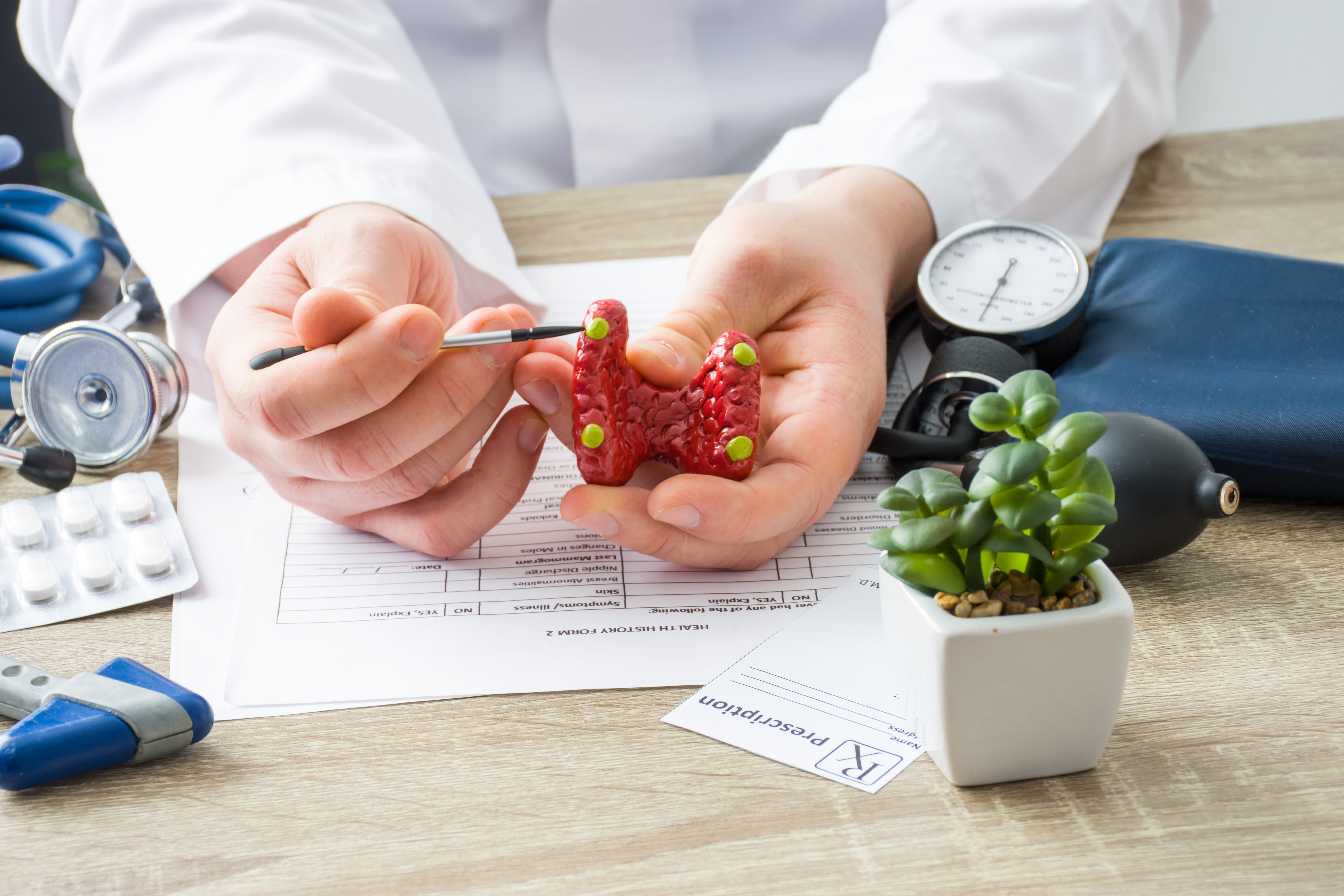DIAGNOSIS
A doctor who suspects hypoparathyroidism will obtain a medical history and conduct a physical exam.
These findings on blood tests might indicate hypoparathyroidism:
- Blood calcium level is low
- Levels of parathyroid hormone are low
- The blood-phosphorus level is high
- Blood-magnesium level is low
A urine test may also be requested by the doctor to determine whether your body is excreting too much calcium.
TREATMENT
The objective of treatment is to relieve symptoms and normalize levels of calcium and phosphorus in your body. A treatment regimen usually includes:
- Oral calcium carbonate tablets. Calcium levels in your blood can increase with this tablet. But a high dose can cause gastrointestinal side effects
- Vitamin D. High doses of vitamin D, mostly in the form of calcitriol, can help your body absorb calcium and eliminate phosphorus.
- Parathyroid hormone. This once-daily injection that is used as a treatment for low blood calcium levels due to hypoparathyroidism is approved by the Food and Drug Administration (FDA). This drug is only available as a prescription because of its dangers and the possibility of bone cancer that was found in People with unstable calcium levels can use this drug.
Diet
Your doctor may suggest that you consult an adviser on a diet or what we call dietitian. He or she will recommend you to take foods that are:
- Rich in calcium. Milk products like cheese and fresh vegetables are high in calcium and you can find them in your diet.
- Low in phosphorus. Avoid carbonated beverages. Limit consumption of meat products and whole grains, because they contain phosphorus in the form of phosphoric acid.
Intravenous infusion
For urgent relief, your doctor may suggest medications. Calcium may be given to you through an intravenous (IV) solution. He or she may prescribe some oral calcium tablets. You’ll continue your oral medications after your discharge from the hospital.


